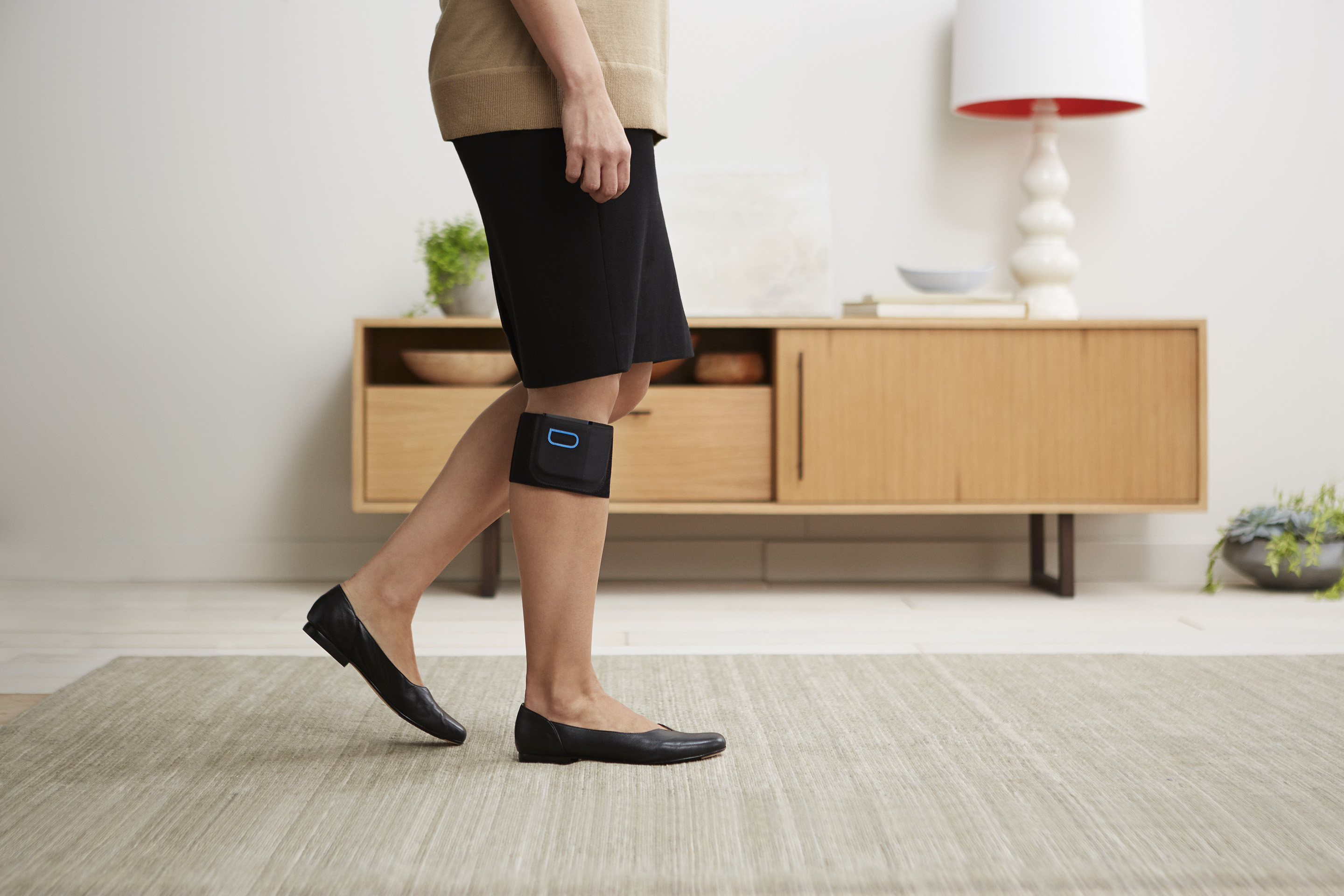Can this wearable band eliminate pain using electric pulses?
From The Idea Factory, our special report on innovation


A free daily email with the biggest news stories of the day – and the best features from TheWeek.com
You are now subscribed
Your newsletter sign-up was successful
For many of the 100 million Americans who suffer from some kind of chronic pain, prescription drugs and unrelenting discomfort are constant companions.
Maybe it doesn't have to be that way. A new wearable device called Quell claims to provide drug-free pain relief by utilizing electric pulses to turn down pain signals in the brain, and all with the simple touch of a button. But is it too good to be true?
The Quell device, created by NeuroMetrix Inc., consists of two electrodes on a simple black band that wraps around the top of the calf, an area packed full of sensory nerve endings. Using a method called TENS (transcutaneous electrical nerve stimulation), the electrodes send pulses through those nerves and up to the brain, triggering the body's natural pain relief system within about 15 minutes.
The Week
Escape your echo chamber. Get the facts behind the news, plus analysis from multiple perspectives.

Sign up for The Week's Free Newsletters
From our morning news briefing to a weekly Good News Newsletter, get the best of The Week delivered directly to your inbox.
From our morning news briefing to a weekly Good News Newsletter, get the best of The Week delivered directly to your inbox.
Quell users "feel only a faint buzzing, tingling sensation where the leads make contact with your skin," according to PC World. The device is discreet and user-friendly — you literally push a button to activate it — and provides 40 hours of pain relief for every full battery charge. A companion app also tracks a user's therapy and sleep patterns.
The TENS method isn't new. It's already been used to treat migraines and other ailments. In fact, the creators of Quell have a similar product called Sensus that does essentially the same thing. But Quell is purportedly twice as strong as other devices, and is the first of these contraptions to receive approval from the FDA to be sold without a prescription alongside other over-the-counter pain drugs. "Anybody with an ache can simply buy it at retail, as they would a bottle of aspirin," writes Hiawatha Bray at The Boston Globe.
Demand for such a product is high among consumers, and Quell's Indiegogo campaign, which had a goal of $100,000, ended up raising more than $300,000.
Now, if you think a pain-relieving wearable device sounds too good to be true, you might be right. Whether or not TENS actually works is disputed. Several studies have been unable to find conclusive evidence of its effectiveness, and in 2009, the American Academy of Neurology shot down the use of TENS for lower back pain, saying it "is not effective and cannot be recommended."
A free daily email with the biggest news stories of the day – and the best features from TheWeek.com
But anecdotally, it seems this kind of nerve stimulation does provide relief, at least for some people. Quell's creators mention ailments like "diabetic neuropathy, fibromyalgia, sciatica, and osteoarthritis" as being potentially treatable with TENS.
Quell will retail for $250 and requires two electrodes each month, priced at around $30. And if by chance it doesn't work for you, return it within 60 days to get your money back.
Jessica Hullinger is a writer and former deputy editor of The Week Digital. Originally from the American Midwest, she completed a degree in journalism at Indiana University Bloomington before relocating to New York City, where she pursued a career in media. After joining The Week as an intern in 2010, she served as the title’s audience development manager, senior editor and deputy editor, as well as a regular guest on “The Week Unwrapped” podcast. Her writing has featured in other publications including Popular Science, Fast Company, Fortune, and Self magazine, and she loves covering science and climate-related issues.
-
 One great cookbook: Joshua McFadden’s ‘Six Seasons of Pasta’
One great cookbook: Joshua McFadden’s ‘Six Seasons of Pasta’the week recommends The pasta you know and love. But ever so much better.
-
 Scientists are worried about amoebas
Scientists are worried about amoebasUnder the radar Small and very mighty
-
 Buddhist monks’ US walk for peace
Buddhist monks’ US walk for peaceUnder the Radar Crowds have turned out on the roads from California to Washington and ‘millions are finding hope in their journey’
